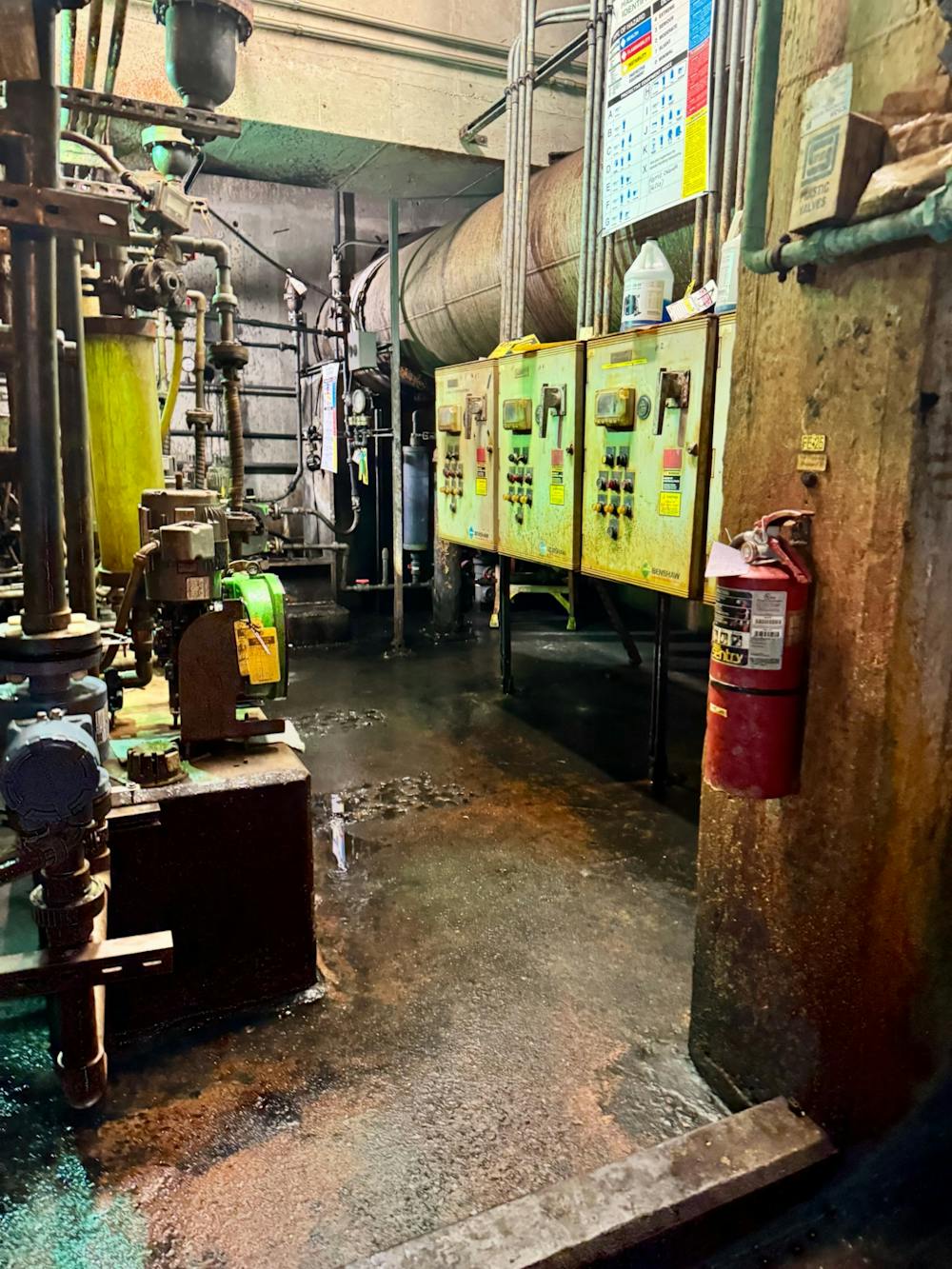By Raeanne Raccagno
News Editor
Due to years-long frustrations with drinking water, Trenton Water Works and the Trenton City Council are seeing a petition against them, continue to receive complaints from residents and a lawsuit from the state and surrounding municipalities.
TWW serves around 225,000 people from Trenton, parts of Hamilton Township, Ewing Township, Lawrence Township and Hopewell Township, according to its website. It is also the largest publicly owned urban water facility in the United States, supplying on average “27 million gallons of Delaware-sourced drinking water per day to 63,000 metered customers.”
The water facility serves a large number of residents, but the amount of complaints filed against the company regarding drinking water issues seems to outnumber the residents.
Frank Cusack, a 33-year-old born and raised in Hamilton Township, started a petition to “vote no confidence in Trenton’s Water Utility Management” on Aug. 28. Until six years ago, he lived in the part of Hamilton Township that is serviced by Aqua New Jersey. But after Cusack and his wife bought and moved into their current home, they have been receiving unsafe water notices from Trenton Water Works.
The College also receives its water from TWW and has received notices in the past that the company has sent out, according to Luke Sacks, the head media relations officer at the College.
When Cusack and other locals serviced by TWW receive notices, it’s due to water boiling notices, taps running dry or Legionella bacteria. With the six years that Cusack and his family have been in their home, he estimates they receive about two to three notices per year regarding water issues.
“Not only is it personally affecting me, but I know the socioeconomic breakdown of this area, and I know for some people, having a filter at home is not in the cards financially,” Cusack told The Signal. “So there are less fortunate people in the area that have to make that decision [boiling water] way more than I ever have to.”
Along with creating the petition, Cusack has also started a Facebook community page called “Coalition for HELTHY Water.” The acronym “HELTHY” represents the five towns serviced by TWW: Hamilton, Ewing, Lawrence, Trenton and Hopewell.
People have been voicing their concerns and frustrations regarding TWW in Cusack’s Facebook group but also in general community Facebook pages designated for each town. Some members shared photos of filling a filtered water pitcher from the tap that also has a filter system as a do-it-yourself double filtration.
Cusack has been voicing his concerns not only as an aggravated resident but also as a worried parent.
“The main concern is Legionella. In the summer, if she [Cusack’s daughter] wants to play outside in a sprinkler or run through a water pad, is it treated properly? Is there the possibility that she's going to get Legionnaires?”
In the petition’s biography, Cusack mentions how an alternate management solution must be considered. On Aug. 18, the New Jersey Department of Environmental Protection’s Commissioner Shawn LaTourette gave a presentation to the Trenton City Council to go over the concerns associated with TWW, proposing regionalization and stating that the facility is at “extremely high risk of systematic failure.”
Trenton City Council members and some Trenton residents voiced concerns with a regionalized system and the idea of it being “forced” upon them.
“You’re saying you’re not sure if it's sustainable or not. My question to you is, if you are here not to take something that is of value to us, and to collaborate with us. Why not empower us to maintain our own water supply?” Councilwoman Teska Frisby asked the commissioner during the meeting.
The NJDEP regulates community water systems and the department has asserted direct operational oversight after the system “has struggled to maintain compliance with the Safe Drinking Water Act for many years,” LaTourette told The Signal.
In 2020, LaTourette pursued a lawsuit against the Trenton City Council, along with the municipalities outside of Trenton that are serviced by TWW. The lawsuit was put on hold in 2022 while the state was conducting studies. Once the studies were completed, the mayors of the impacted surrounding towns met to discuss how the results showed “larger issues,” according to Hamilton Township Mayor Jeff Martin.
“You don't have confidence in what you're getting every day,” Martin said regarding the water quality. Even those who are a part of Hamilton Township that is not serviced by TWW will still be affected by their issues in restaurants, offices, stores or schools, according to Martin.
“... clearly it was understood they [Trenton City Council] would never be supportive of creating a regional entity,” Martin told The Signal, referring to the Aug. 18 meeting with the Trenton City Council, so the state and municipalities involved in the lawsuit decided to continue to pursue the case.
“I think there is a knee-jerk reaction that can happen in the water sector when folks have a municipally owned water system,” LaTourette told The Signal. “Any change to it can sometimes be viewed as privatizing it, selling it to a corporation, but that's not what is at issue here.”
If the water facility is regionalized, it would be as a public entity, and not sold off to a corporation, where Trenton is its largest shareholder, according to LaTourette.
When asked for a statement regarding the backlash they are facing, TWW replied, “Trenton Water Works drinking water meets state and federal Safe Drinking Water Act (SDWA) standards. However, we are aware that we must strive to rebuild trust with our valued customers and service-area consumers, and we are working to achieve this goal. We are undertaking critical capital work, strengthening customer service, training our personnel, and laying the groundwork to improve our communications. And we continue our dialogue with service-area Mayors regarding the future of the water system and our sprawling, well-engineered infrastructure.”







